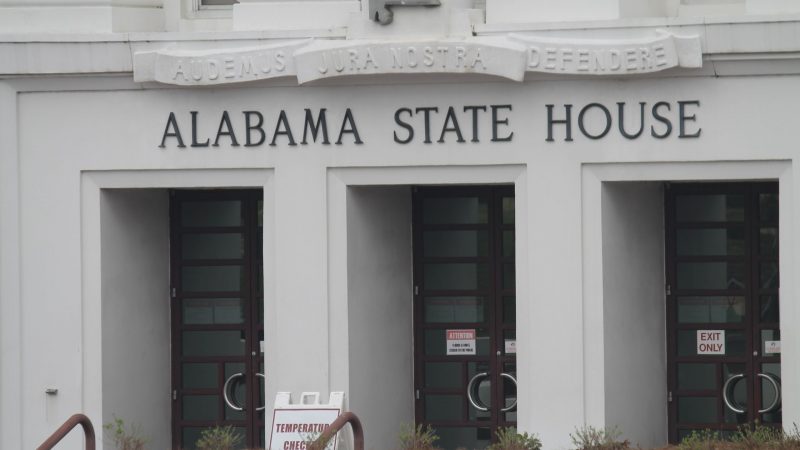Crime in Greater Birmingham: An Increase or Perception?
Ernestine Redmond Washington loves West End.
“West End has got it going on,” says Washington.
She’s worked or lived in the Birmingham neighborhood for 15 years. She says a lot of good things are happening. The city is tearing down abandoned homes. Churches are vibrant. In turn, she’s a known figure in the neighborhood.
“My nickname in the community is ‘Maw Maw,'” says Washington. “It comes from the kids in the community. I love working with the youth.”
She’s also had 19 foster kids.
As much as Washington loves West End, it’s also an area of Birmingham with a higher crime rate in a city that saw homicides rise in 2015. That’s a reversal from the last several years where those numbers dropped to levels not seen in a generation. With that rise and the headlines that come with it, crime is pushing back to the forefront of community conversation.
The View on the Ground
Washington’s best friend Lachone McIntyre say crime does seem to be going up.
“It’s like every other day someone’s being shot. Something is going on,” says McIntyre. “Just five years ago you didn’t hear this.”
She says people are fearful to go out at night. Some churches stopped holding evening Bible studies. Things hit home for Washington last year when she got a call from one of the young men in the neighborhood.
“Maw Maw, I need you. Come right away,” recalls Washington. “I thought he was having an asthma attack cause I knew he has asthma. When I got there he had been shot.”
She says he was only shot in the foot and is ok, but she has a growing list of these types of stories.
Washington she believes police are doing what they can. She adds parents are key to preventing crime. McIntyre says poverty and a lack of economic opportunity in this part of town leaves people desperate.
“Until we address the economic situation, this is going to continue,” says McIntyre.
West End is not the only place where crime is top-of-mind. The murder of an Iraq War veteran in front of his home in Hoover shocked that community.
“In my 30 years here I don’t think I’ve had an outpouring of the community being just upset anything like I’ve seen with the January homicide.” says Hoover Police Chief Nick Derzis.
He says two people have been arrested in connection with that case. And while Hoover’s five homicides in 2015 is an uptick, he’s quick to point out all were solved.
Derzis says one thing he and his law enforcement colleagues around Birmingham have noticed is it seems violent crimes are increasingly committed by teens.
“When these young people commit these crimes, it’s devastating for the people they’re committing them against, the families that are affected, the extended families that are affected,” says Derzis. “It’s just a bad deal all around and none of us really understand why it’s happening.”
Derzis says even though murders grab headlines and capture public attention, that’s not the whole picture. He says robberies, for instance, are flat in Hoover and low for a city of its size.
The Bigger Picture
UAB criminal justice professor John Sloan says that bigger picture is important context.
“Even in communities that have the highest rates of murder in the nation murder is an extremely rare event,” says Sloan.
That’s why it’s news. Just as the media is an incomplete bellwether, anecdotes told among friends aren’t reliable either.
“Because your neighbor’s car was broken into does not mean that the City of Birmingham has more crime this year than it does last year,” says Sloan. “You can’t then generalize to the collective based on the experiences of one person.”
Sloan says even with a rise in homicides in Birmingham and other cities around the country, crime overall is at lows not seen since the 1950s. Nor does a one-year increase constitute a trend. But he says that doesn’t mean we can’t or shouldn’t do something about that increase.
What’s your favorite thing about Alabama?
That's the question we put to those at our recent News and Brews community pop-ups at Hop City and Saturn in Birmingham.
Q&A: A former New Orleans police chief says it’s time the U.S. changes its marijuana policy
Ronal Serpas is one of 32 law enforcement leaders who signed a letter sent to President Biden in support of moving marijuana to a Schedule III drug.
How food stamps could play a key role in fixing Jackson’s broken water system
JXN Water's affordability plan aims to raise much-needed revenue while offering discounts to customers in need, but it is currently tied up in court.
Alabama mine cited for federal safety violations since home explosion led to grandfather’s death, grandson’s injuries
Following a home explosion that killed one and critically injured another, residents want to know more about the mine under their community. So far, their questions have largely gone unanswered.
Crawfish prices are finally dropping, but farmers and fishers are still struggling
Last year’s devastating drought in Louisiana killed off large crops of crawfish, leading to a tough season for farmers, fishers and seafood lovers.
Lawmakers consider medical cannabis revamp
It’s been three years since Alabama lawmakers passed legislation establishing a system to govern medical cannabis in the state, yet not one prescription for the drug has been filled. The rollout has been delayed by lawsuits and conflict over the licensing process.







